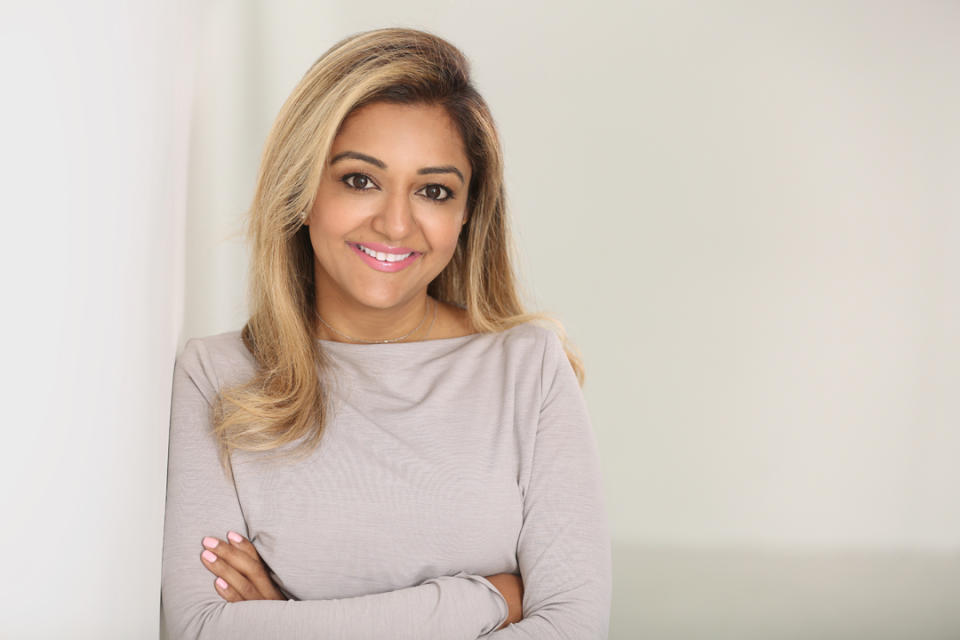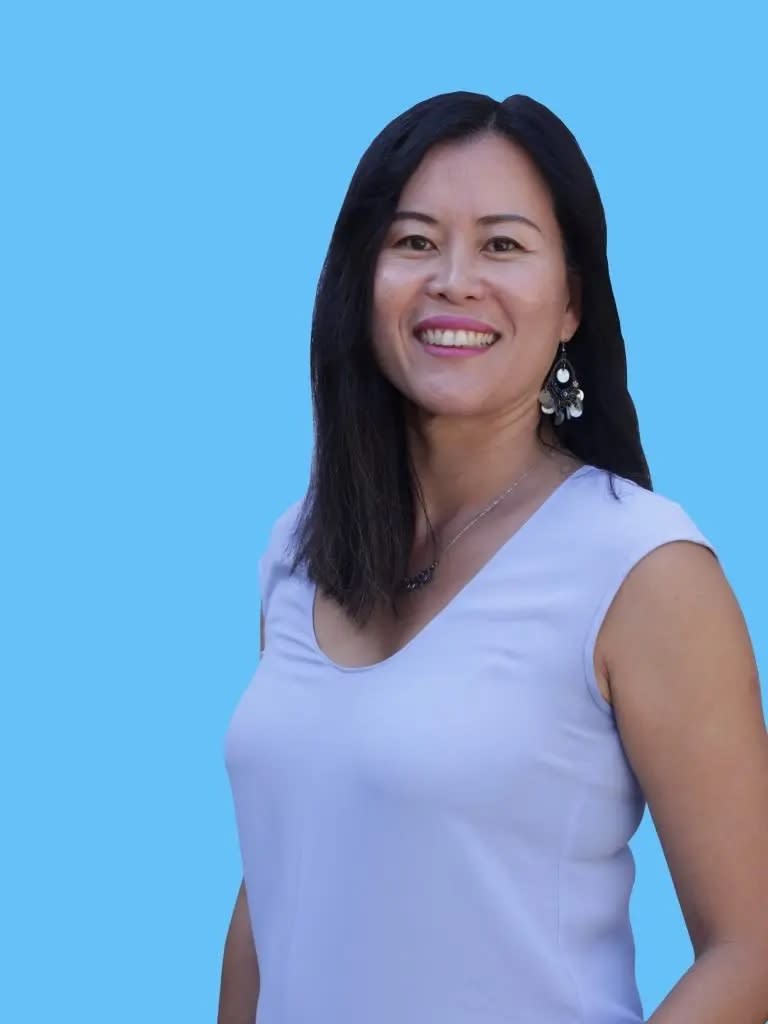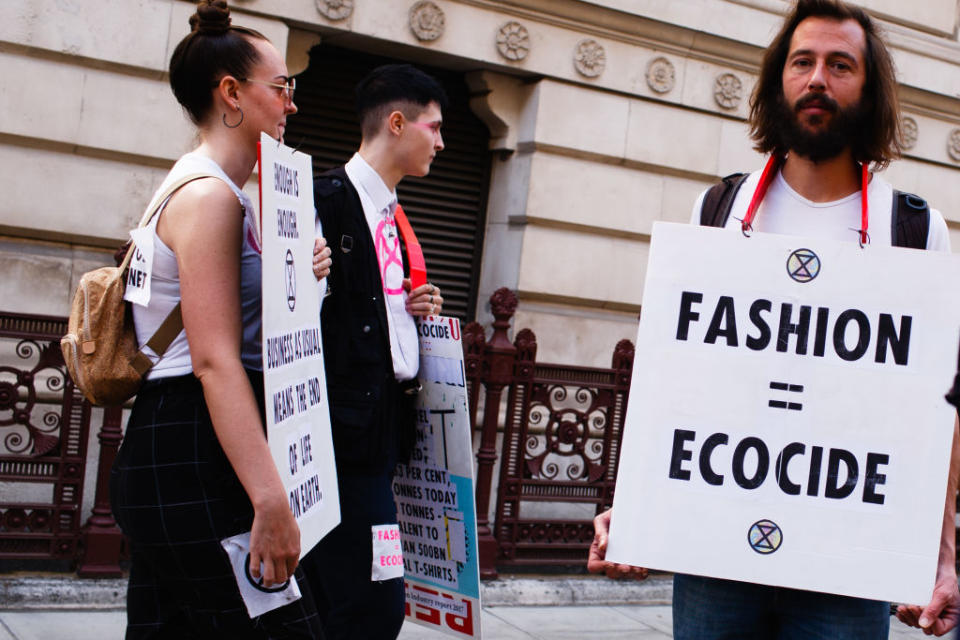Cerqular and Cadre Style Want to Be the Amazon of Sustainable Fashion

Sustainable fashion marketplaces are on the rise, with a former Gucci exec’s startup just one example of new entrants trying to give ethical brands a bigger spotlight.
For Tania Ali, the movement around sustainable fashion presented the perfect time to put aside a 13-year career as a fintech lawyer and do something with a bigger purpose.
More from Sourcing Journal
“I just wanted to do something that helps the planet,” said Ali, who still does a little legal work to support her new venture. “I was already composting and telling my friends about it, but how can I do something that has a bigger impact than just being a lawyer for fintech? There’s so many lawyers in fintech.”
The answer she came up with was to start an e-commerce site that would verify the sustainable bona fides of every brand on it and in May last year Ali launched Cadre Style, her answer to the local health food store blazing the trail for the proverbial Whole Foods of sustainable fashion.
“What is sustainability? Sustainability has no definition, so the lawyer in me is like, ‘gotta focus,’ so, the mission is waste reduction,” Ali said. “With that, I came up with three core pillars—transparency, fair labor and waste reduction. Every brand has to tell us everything about them; what materials they use—an open book.”
To pull that off, Ali needed a third-party partner and she found one at Hey Social Good where Cindy Lin started up after she left the Environmental Protection Agency (EPA), hoping to do something with greater impact. One of her last projects at the EPA was trying to update the database on all kinds of environmental data.

“In doing that, I really wanted data to be made available to the public and anybody who wanted to have access to it so they can make better decisions, whether it’s for themselves or for their business,” she said. “The problem is, oftentimes the data is not easily accessible—it belongs to the public, but it’s in reports or it’s hard to access, it’s on a shelf somewhere.”
Using what she calls a social good optimization framework, Lin created essentially a scorecard that starts with the 17 United Nations Sustainable Development Goals and ends with a complex cocktail of data that scores businesses on various facets of their environmental footprint.
It may all sound daunting, but Lin hopes the results are more encouraging than intimidating, an ethos she says is core to Hey Social Good’s mission.

“Probably because I spent so many years on the regulatory side, our approach is to encourage businesses wherever they are to start that sustainable journey and to help educate them,” Lin said. “In terms of our data, we’re looking for that better practice that reduces harm or improves or benefits people and the planet in some way.”
Ali doesn’t publicize the scores that she receives from Hey Social Good. But if they’re on Cadre, they’ve passed the test.
“Cindy created a framework using 500 sustainability goals. I call it the background check,” Ali said. “Do you have fair labor? If you say ‘yes’ she checks up on it. She also checks back on what your giveback to the community is. I believe, without sustaining humans you can’t sustain the planet. Every brand has to use recycled or biodegradable materials to be on our site.”
Ali also chose fashion as her vehicle for doing good because she doesn’t think dressing sustainably should mean dressing dully.
“Personally, when I go to shop sustainable clothes I see a lot of tan, linen dresses—super granola,” Ali said. “I’ll typically buy two things—one of the brands is greenwashed and I get irritated and the other brand is amazing quality, like these cowboy boots [I’m wearing] made of apple leather,” a style Cadre stocks.
When her clothing sounds like it’s coming from a supermarket’s produce section, Ali knows she’s probably heading in the right direction.
“Whole Foods and what it did for organic food—it created space and mimicked everything you would see in a regular grocery store, not like a health food store,” Ali said. “You’re doing everything there, but you’re not even conscious of it. If you want milk, you’re not going to get the same milk you get at ShopRite, and that’s the vision for Cadre. You have a regular retail experience, 30-day returns, free shipping over $100 and then you don’t have to worry; [the sustainability credentials have] already been checked.”
Ali said her customer base—all female, with menswear something she hopes to add down the line—typically ranges in age from 25-50 with an average income of $150,000 to $300,000. Los Angeles, New York and Salt Lake City have been her biggest hotbeds so far
She believes the same way some people started eating healthier at Whole Foods without being aware of it, has to be the same psychological path to sustainability in fashion.
“I think this is the key that we don’t need to change consumer behavior. The way to change is that is through access,” she said. “The more people support sustainable brands, the bigger brands will have to follow because they care about making money. Once they see a tipping point occur, they’ll all change.”
New marketplace gets circular
David Friedrichs knows all about tipping points. He describes his e-commerce marketplace Cerqular as ‘Amazon 2.0’, selling everything from clothing and food to beauty supplies and pets and tracking his customers’ ‘values’ through algorithms. He likes Ali’s Whole Foods analogy.
“I think when consumers are left to be given objective information, they will usually make the right decisions—not always, but they will usually make the right decisions,” Friedrichs told Sourcing Journal. “We have a lot of trust in human decision-making. It’s only when the information is taken away, or they’re given misleading information, such as just having the lowest price and then they’re going to be swayed.”
While Cadre uses a third party to verify vendors’ green credentials, Cerqular does that work in-house and even extends its value proposition by working with Manifest, the sustainable e-commerce fulfillment startup run by ShipBob alum George Wojciechowski.
“Most people don’t buy a Tesla or the Porsche Taycan because they’re greenies; it’s usually because of some other factor,” Friedrichs said. “Cerqular was designed to cater for your level of interest, but essentially, sustainability is just one component. What we’re seeing more than anything is that supply chains are shifting and rapid rates to value-based consumption models and value-based includes everything from gender neutral, BIPOC, female-founder, local, organic—things that really resonate with [groups.] But ultimately, you can combine all of that with a guilt-free indulgence, as well as the best price.”
cerqular – How to cerq It https://t.co/C5JYaLawLa#webdesign #webdev #css #cssfox #websiteawards #web #frontend #javascript #news #webdevelopment pic.twitter.com/BmzkxABjKe
— Cssfox (@_cssfox) March 14, 2021
As for sustainability ratings, Friedrichs says his company does them independently.
“It’s completely objective based on information and documentation received by the brand, which is then backed up through independent sources,” Friedrichs said. “It’s not a verification body, but we verify the verification essentially, to make sure that there are no fakes or knockoffs, or, you know, dodgy ones slipping through.”
Friedrichs believes a bigger, more comprehensive solution than third-party verification is what is ultimately needed for his company.
“I think [third-party verifications are] OK. I think there’s a better way of doing this where we actually have circular zero-impact. What we’re moving to is an entire inventory management program where every product [that] eventually gets sold on Cerqular will be QR coded,” he said. “Whether it’s manufactured in China, Mexico, L.A., whether it’s a food item or shoe, it’s going to be tracked from its inception right through to its multiple end of lives.”
So who pays for the analysis required to run a “background check” on Hey Social Good?
In the case of Cadre, it’s typically Ali, but many of Lin’s clients end up being businesses looking for validation of their efforts, or a roadmap to sustainable status.
In the case of the latter, very few make the grade.
“I don’t think that people are trying to greenwash, although, I’m sure there’s a few that are,” Lin said. “I just think like that’s the gap of knowledge. For example, someone says ‘hey, my R-shirt is made out of organic cotton’, which, by itself is great, right? But then the problem is maybe they didn’t understand that the organic cotton that they sourced it was from a manufacturer who didn’t have to meet any permit discharge limits when they discharge water. And so all of that water is going directly into a river that’s polluted.”
Ali likes the way Hey Social Good emphasizes the process of sustainability over the result and consistently invites—and lights—the way back to good stewardship.
“Cancel culture is not something I love,” Ali said. “All of a sudden we have this unrealistic standard of ‘it has to be like this.’ Good on you. Three smiley faces, but…why not just promote the good? For us, if you don’t pass, you don’t get put on the side, but you could implement some things in the future and come back to us. If something’s not where it needs to be, let’s come back to the table when you’re where you need to be.”
Items on Cadre Style include products that use polyester made from recycled plastic bottles, even though many experts say that is not the best use of those materials; that a plastic bottle should be recycled as a plastic bottle. Lin said that even though this type of recycling doesn’t help with climate change or carbon emissions, it is an overall good.
“The singular problem it solves seems to be working—reducing the production quantity of virgin polyester and thereby, reducing a reliance on fossil fuel combustion,” Lin said. “More and more brands are now adopting the use of recycled plastic bottles as an additional source for textile and fabric production. It is unlikely that brands will stop using other fibers and textiles to design and create clothing lines. However, if our collective goal is to create true circularity, and a ‘sustainable’ economic model where we turn our waste into a valued commodity, this approach is helpful. And certainly, less burning of our fossil fuels to create more polyester and plastic is a benefit.”
Why this time is going to be different
Previous generations have vowed to get serious about global warming and climate change, but few would say there’s been meaningful progress on this front.
But the tides are turning, and this time, it feels like things might be different.
“I think there’s no choice left,” Ali said. “Two things are important: Gen Z cares so much and they are the biggest pocket of money there’s going to be. They want this world and we have to create it for them or they will create it. The second thing is that Europe has already put in their sustainability plans for fashion in 2025. America tends to be farther behind, but at the same time we look to Europe for fashion trends.”

Lin started Hey Social Good in 2018, just before words like greenwashing and sustainability became part of the common vernacular.
“For me, the reason Hey Social Good is existing is I’m recognizing that there’s laws out there, there’s policies out there, there’s definitely people who are calling and crying out there. We know there’s a problem and what we want to do is provide a solution,” Lin said. “We want every business to realize, like, ‘oh, we can do it. I’m going to try to go for the gold,’ and in the end, that really is our mission.”
For all the can-do talk, Friedrichs says the role of peer pressure and public shaming can’t be discounted when the goal is seismic cultural change.
“I’ll tell you the politically correct answer, which is that it’s the information kids are getting at school and are all learning [about sustainability]. When I went to school, I never learned about it; it wasn’t even a thing,” he said. “But the actual reason is, it’s based on social norms now. It’s based on, ‘are you a smoker?’ If you are, then you know you’re not cool anymore. The actual core brands are now talking about doing the right thing without having to say they’re doing the right thing.”
And once people feel accepted into the cool crowd, Friedrichs points out, they’ll want to show off that acceptance.
“It’s the shareable nature of sustainability that is now contemporary and the cool thing about that is we’re riding that wave, so we’re really happy about that because it’s doing the marketing for [Cerqular],” he said. “But essentially, what we’re seeing in the background is that this perceived change is now becoming an actual change.”
Found this perfectly aligned with what we're building at Cerqular – in particular from 1.30 min onwards ().
All in addition to major advances such as Governments stepping up, China's pledge to be carbon neutral by 2060 (Cerqular…https://t.co/0TR9umMYzD https://t.co/7Hn4JfeSTk— Cerqular (@cerqular) September 8, 2022

